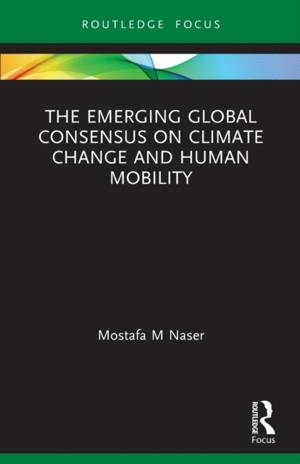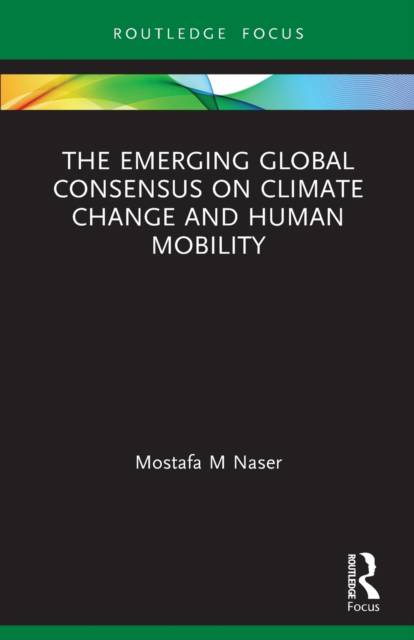
- Afhalen na 1 uur in een winkel met voorraad
- Gratis thuislevering in België vanaf € 30
- Ruim aanbod met 7 miljoen producten
- Afhalen na 1 uur in een winkel met voorraad
- Gratis thuislevering in België vanaf € 30
- Ruim aanbod met 7 miljoen producten
The Emerging Global Consensus on Climate Change and Human Mobility
Mostafa M NaserOmschrijving
This book examines whether a global consensus is emerging on climate change and human mobility and presents evidence of a slow-moving but dynamic, step-by-step process of international policy development on climate-related mobility.
Naser reviews the range of solutions offered to address climate-related mobility problems, such as extending the 1951 UN Refugee Convention, adopting an additional protocol to the UNFCCC or creating a new international treaty to support those facing climate-related migration and displacement problems. He examines the accumulating stock of international policies and initiatives relevant to climate-related mobility using a framework of six policy areas: human rights, refugees, climate change, disaster risk reduction, migration, and sustainable development. He uses this framework to define and summarise the main UN actions and milestones on climate-related mobility. Despite the difficult context affecting the global community of worsening climate change impacts and human rights under threat, Naser asserts that the foundations of global consensus on climate-related mobility have been built, particularly in the last decade.
This book will be of great relevance to students, scholars and policy-makers with an interest in the increasing interface between climate change and human mobility policy issues.
Specificaties
Betrokkenen
- Auteur(s):
- Uitgeverij:
Inhoud
- Aantal bladzijden:
- 106
- Taal:
- Engels
- Reeks:
Eigenschappen
- Productcode (EAN):
- 9780367642693
- Verschijningsdatum:
- 30/05/2022
- Uitvoering:
- Paperback
- Formaat:
- Trade paperback (VS)
- Afmetingen:
- 140 mm x 216 mm
- Gewicht:
- 136 g

Alleen bij Standaard Boekhandel
Beoordelingen
We publiceren alleen reviews die voldoen aan de voorwaarden voor reviews. Bekijk onze voorwaarden voor reviews.









